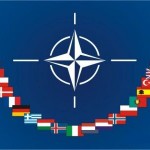Introduction – (C) Kapok Tree Diplomacy, July 2010, All rights reserved. Jeff Dwiggins, author.
FREE CONTENT
As international law extends beyond traditional state-to-state interactions into matters directly involving the rights and wrongs of individuals, its pervasive encroachment directly collides with domestic law on important issues of supremacy, customary norms, jurisdiction, human rights and sovereign immunity. Courts often struggle to navigate the chasm between the two realms of international and domestic law and produce cogent, universally accepted decisions that fall within uncontested limitations and clear jurisdictions.
This paper will explore the challenges, benefits and trade-offs of a non-traditional application of international law in cases involving individuals where the dynamics of tradition, jurisdiction and human rights interact in overlapping spheres of domestic and international law, producing a compelling tug of war between competing interests. I’ll begin by examining the issue of international and universal human rights.
The posts, views and opinions expressed on this site are completely my own and do not represent the views or opinions of the Department of Defense (DoD), the Department of the Navy (DON) or any of the Armed Forces.
Section One – International Human Rights v. The Interests of States
The Preamble of the United Nations (UN) Charter calls upon member states to “reaffirm faith in fundamental human rights, in the dignity and worth of the human person, in the equal rights of men and women and of nations large and small,” while Articles 55 encourages member states to promote “universal respect for, and observance of, human rights and fundamental freedoms for all without distinction as to race, sex, language, or religion” (“Preamble” and “Chapter IX”). A thorough reading of the Charter, however, doesn’t uncover any definition or mandate for human rights which has complicated a universal embrace of uniform standards for human rights. Read more
Like this:
Like Loading...






Blind Man’s Bluff: Kazakhstan’s Mirage of Compliance with International Obligations to Uphold the Freedom of Expression and Freedom of Assembly and Association
“Blind Man’s Bluff: Kazakhstan’s Mirage of Compliance with International Obligations to Uphold the Freedom of Expression and Freedom of Assembly and Association” by Kapok Tree Diplomacy
© Kapok Tree Diplomacy. May 2011. All rights reserved. Jeff Dwiggins.
FREE PREVIEW
Section One – The Right to Freedom of Expression
ICCPR Principles and Obligations. The Universal Declaration of Human Rights (UDHR), though not legally binding, declares that “Everyone has the right to freedom of opinion and expression … and to seek, receive and impart information and ideas through any media and regardless of frontiers” (Art. 19).The ICCPR, which Kazakhstan ratified in 2006 (UN Treaty Collection), expands upon this definition and binds state parties “in accordance with its terms and with international law” (Steiner, Alston and Goodman (SAG) 152). Treaty obligations are to be governed by the Vienna Convention’s Article 26 fundamental principle of pacta sunt servanda which states, “[e]very treaty in force is binding upon the parties to it and must be performed by them in good faith” (Dunoff, Ratner & Wippman (DRW) 58). Article 19 of the ICCPR declares: Read more
Share this:
Like this: